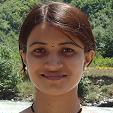International Journal of Image, Graphics and Signal Processing (IJIGSP)
IJIGSP Vol. 4, No. 10, 28 Sep. 2012
Cover page and Table of Contents: PDF (size: 565KB)
RBCs and Parasites Segmentation from Thin Smear Blood Cell Images
Full Text (PDF, 565KB), PP.54-60
Views: 0 Downloads: 0
Author(s)
Index Terms
Segmentation, Thresholding, RGB, Malaria parasites, RBC
Abstract
Manually examine the blood smear for the detection of malaria parasite consumes lot of time for trend pathologists. As the computational power increases, the role of automatic visual inspection becomes more important. An automated system is therefore needed to complete as much work as possible for the identification of malaria parasites. The given scheme based on used of RGB color space, G layer processing, and segmentation of Red Blood Cells (RBC) as well as cell parasites by auto-thresholding with offset value and use of morphological processing. The work compare with the manual results obtained from the pathology lab, based on total RBC count and cells parasite count. The designed system successfully detects malaria parasites and RBC cells in thin smear image.
Cite This Paper
Vishal V. Panchbhai,Lalit B. Damahe,Ashwini V. Nagpure,Priyanka N. Chopkar,"RBCs and Parasites Segmentation from Thin Smear Blood Cell Images", IJIGSP, vol.4, no.10, pp.54-60, 2012. DOI: 10.5815/ijigsp.2012.10.08
Reference
[1]Sio,W.S.S, et al, “MalariaCount: An image analysis-based program for the accurate determination of parasitemia” Journal of Microbiological Methods , ISSN-0167-7012, vol 68, issue 1, pp 11-18, 2007.
[2]F. Sadeghian, Z. Seman and A. R. Ramli, “A Framework for White Blood Cell Segmentation in Microscopic Blood Images Using Digital Image Processing”, Biological Procedures Online, vol. 11, no. 1, pp. 196-206, Dec. 2009.
[3]V. V. Makkapati and R. M. Rao, “Segmentation of malaria parasites in peripheral blood smear images”, Proceedings of IEEE International Conference on Acoustics, Speech and Signal Processing, ICASSP 2009, pp. 1361-1364, Apr. 2009.
[4]L. Damahe, R. Krishna, N. Janwe and Thakur N. V. “Segmentation Based Approach to Detect Parasites and RBCs in Blood Cell Images” International Journal of Computer Science and Applications, ISSN: 0974-1003, ,vol. 4 ,No. 2 ,pp.71-81 , June July 2011
[5]Diaz, G., Gonzalez, F., Romero, E, “Infected Cell Identification in thin Blood Images Based on Color Pixel Classification: Comparison and Analysis”, CIARP-2007 Springer Berlin, pp. 812-821, 2007.
[6]J. Angulo and G. Flandrin, “Microscopic image analysis using mathematical morphology: Application to haematological cytology”, Science, Technology and Education of Microscopy: An overview, vol. 1, pp. 304-312, FORMATEX Eds., Badajoz, Spain, 2003
[7]C. Di Ruberto, A. De mpster, S. Khan and B. Jarra, “Segmentation of blood images using morphological operators”, Proceedings of 15th International Conference on Pattern Recognition Barcelona, Spain, vol. 3, pp. 3401, 2000.
[8]S. Raviraja, Gaurav Bajpai1 and Sharma S “Analysis of Detecting the Malarial Parasite Infected Blood Images Using Statistical Based Approach”, Proceedings 15, pp. 502-505, 2007.
[9]C. Pan, X. Yan and C. Zheng, “Recognition of Blood and Bone Marrow Cells using Kernel-based Image Retrieval”, IJCSNS International Journal of Computer Science and Network Security, vol.6 no.10, october 2006.
[10]S. P. Premaratnea, N. D. Karunaweerab and S. Fernandoc, “A Neural Network Architecture for Automated Recognition of Intracellular Malaria Parasites in Stained Blood Films”, 2003.
[11]S. Halim, T. Bretschneider, Y. Li, P. Preiser and C. Kuss, “Estimating malaria parasitaemia from blood smear images”, Proceedings of IEEE International Conference on Control, Automation, Robot and Visualization, Singapore, 2006.
[12]M. B. Jonathan, S. Costantino and M. L. Leimanis, “Sensitive Detection of Malaria Infection”, Third Harmonic Generation Imaging, 7 November 2007.
[13]C. J. Janse and P. H. Van Vianen, “Flow cytometry in malaria detection”, Methods Cell. Biol. 42 Pt. B:295–318, 1994.
[14]http://www.dpd.cdc.gov/DPDx/HTML/ImageLibrary
[15]N. Otsu, “A threshold selection method from gray– level histogram,” IEEE Transactions on System Man Cybernatics, Vol. SMC-9, No.1, pp. 62-66, 1979.
[16]http://www.malariasite.com/malaria/staining_techniques.htm
[17]Gonzalez, Woods, Eddins, “Digital image processing using matlab”, TMH 2010



